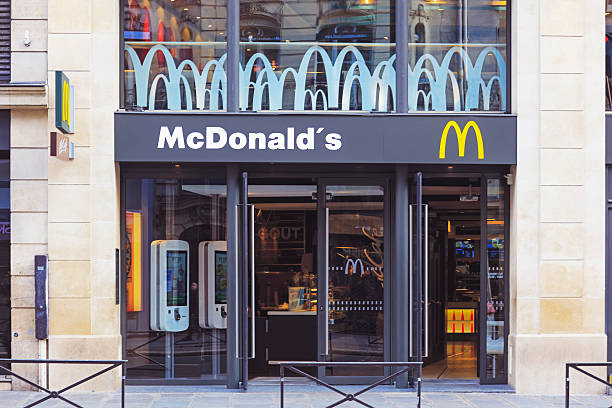
Negative publicity is an inevitable challenge for large corporations, and McDonald’s, as a global leader in the fast-food industry, has faced its fair share of public scrutiny. From health concerns and environmental issues to labor disputes and social media backlash, McDonald’s has had to navigate various controversies. This article explores the strategies McDonald’s employs to manage negative publicity and maintain its reputation.
Understanding the Sources of Negative Publicity
Health Concerns
Issues related to the nutritional content of food, food safety scandals, and public health criticisms often bring negative attention to McDonald’s. Reports of unhealthy ingredients, contamination, or foodborne illnesses can quickly escalate into major crises.
Environmental Issues
McDonald’s has faced significant criticism over its environmental impact, particularly concerning waste management, deforestation, and sustainable sourcing practices. Environmental activists and concerned consumers frequently call for greater corporate responsibility.
Labor Disputes
Labor disputes and issues related to employee treatment, such as allegations of poor working conditions, wage disputes, and unionization efforts, can lead to substantial negative publicity.
Social Media Backlash
Social media has amplified the impact of negative publicity. Missteps in marketing campaigns, customer service failures, or insensitive remarks can quickly go viral, attracting widespread criticism.
Strategies for Managing Negative Publicity
Immediate and Transparent Communication
One of the most critical strategies for managing negative publicity is immediate and transparent communication. McDonald’s prioritizes swift responses to address the issues directly and transparently.
Key Actions:
- Public Statements: Issuing timely public statements to acknowledge the issue and outline the steps being taken to address it.
- Media Engagement: Engaging with the media to provide accurate information and prevent misinformation from spreading.
- Social Media Response: Using social media platforms to communicate directly with customers, address their concerns, and provide updates.
Proactive Crisis Management
Proactive crisis management involves preparing for potential issues before they escalate into full-blown crises. McDonald’s employs several proactive measures to mitigate risks and manage crises effectively.
Proactive Measures:
- Crisis Response Plan: Developing a comprehensive crisis response plan that outlines procedures for handling various types of crises.
- Training and Drills: Conducting regular training sessions and crisis drills to ensure employees are prepared to respond effectively.
- Monitoring and Early Detection: Utilizing monitoring tools to detect potential issues early and address them before they escalate.
Corrective Actions and Accountability
Taking corrective actions and demonstrating accountability are essential to managing negative publicity. McDonald’s focuses on addressing the root causes of issues and implementing changes to prevent recurrence.
Corrective Measures:
- Investigations: Conducting thorough investigations to understand the cause of the issue and take appropriate action.
- Policy Changes: Implementing new policies or revising existing ones to address the issues highlighted by the crisis.
- Employee Training: Providing additional training to employees to prevent future incidents and improve service quality.
Engaging with Stakeholders
Engaging with key stakeholders, including customers, employees, suppliers, and advocacy groups, helps McDonald’s address concerns and demonstrate a commitment to positive change.
Engagement Strategies:
- Customer Feedback: Actively seeking and responding to customer feedback to understand their concerns and improve services.
- Collaborations: Partnering with advocacy groups and industry experts to develop and implement best practices.
- Community Involvement: Participating in community initiatives to demonstrate corporate social responsibility and rebuild public trust.
Enhancing Corporate Social Responsibility (CSR)
Enhancing CSR initiatives helps McDonald’s address negative publicity by showcasing its commitment to social and environmental issues. These initiatives focus on sustainability, community engagement, and ethical practices.
CSR Initiatives:
- Sustainability Programs: Committing to environmental sustainability and ethical sourcing to address ongoing criticisms and improve public perception.
- Community Support: Supporting local communities through charitable donations, sponsorships, and volunteer programs.
- Transparency and Reporting: Providing transparent reporting on CSR activities and progress towards goals.
Leveraging Positive Publicity
Leveraging positive publicity helps counterbalance negative media coverage and reinforce McDonald’s commitment to positive change. The company highlights its achievements, initiatives, and contributions to society.
Positive Publicity Strategies:
- Highlighting Success Stories: Sharing success stories of employees, community initiatives, and sustainability efforts.
- Media Campaigns: Launching media campaigns to promote positive aspects of the brand and its contributions.
- Customer Engagement: Encouraging customers to share positive experiences and testimonials.
FAQs
How does McDonald’s handle health-related negative publicity?
McDonald’s handles health-related negative publicity by issuing immediate public statements, conducting thorough investigations, and implementing corrective actions. The company also emphasizes transparency and effective communication to rebuild trust with customers.
What steps does McDonald’s take to address environmental criticisms?
To address environmental criticisms, McDonald’s commits to sustainable sourcing, reducing plastic waste, and setting ambitious environmental goals. The company collaborates with environmental organizations and transparently communicates its sustainability efforts to the public.
How does McDonald’s manage labor disputes and related negative publicity?
McDonald’s manages labor disputes by engaging in open dialogue with employees, conducting regular audits to ensure compliance with labor laws, and implementing policies to improve working conditions. The company also collaborates with labor organizations to resolve disputes amicably.
How does McDonald’s respond to social media backlash?
McDonald’s responds to social media backlash by using social media platforms to communicate directly with customers, address their concerns in real-time, and provide updates. The company also monitors social media to detect potential issues early and respond proactively.
What are some examples of McDonald’s CSR initiatives?
Examples of McDonald’s CSR initiatives include sustainability programs focused on reducing environmental impact, community support through charitable donations and volunteer programs, and transparent reporting on CSR activities and progress.
Conclusion
Managing negative publicity is a critical aspect of maintaining McDonald’s reputation and customer trust. By employing strategies such as immediate and transparent communication, proactive crisis management, corrective actions, stakeholder engagement, enhancing CSR initiatives, and leveraging positive publicity, McDonald’s aims to mitigate the impact of negative media coverage and demonstrate its commitment to positive change. These efforts reflect McDonald’s dedication to operating responsibly and maintaining a positive public image in the face of challenges.